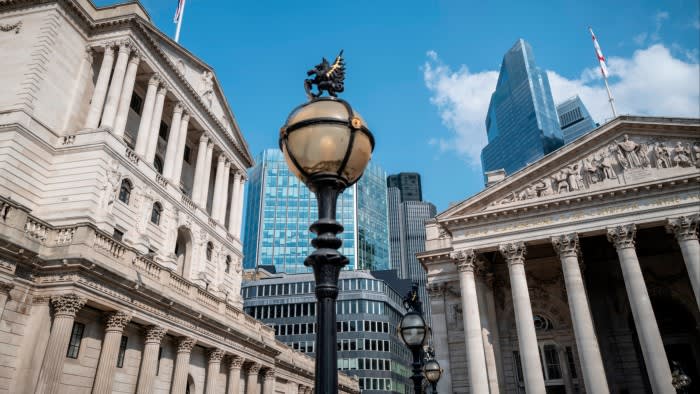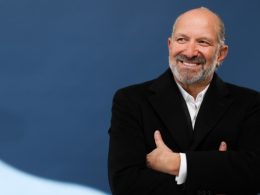Stay informed with free updates
Simply sign up to the UK interest rates myFT Digest — delivered directly to your inbox.
The Bank of England is expected to vote for its second interest rate cut this year despite predictions that Rachel Reeves’ Budget will boost near-term demand, as the UK central bank focuses on a longer-term picture of slowing inflation.
The BoE’s Monetary Policy Committee will on Thursday announce its latest interest rate decision, with economists polled by Reuters forecasting a quarter-point reduction in the benchmark rate to 4.75 per cent.
Traders on Friday were putting a near 90 per cent probability on a second reduction after August’s cut, the first in more than four years. The MPC held rates at 5 per cent when its nine members last met in September.
On Wednesday the chancellor set out an unexpectedly big boost to borrowing and a hefty increase in public spending in her first fiscal event, unsettling financial markets and prompting a repricing of the path of interest rates.
Officials at the Office for Budget Responsibility, the fiscal watchdog, said the scale of the “discretionary fiscal easing” in Reeves’ statement was likely to lead to a slightly shallower path of interest rate reductions.
But economists said the near-term stimulus in the Budget, which led to higher inflation forecasts from the OBR, was unlikely to be substantial enough to derail a widely anticipated rate cut on Thursday.
The longer-term outlook is less certain, with BoE governor Andrew Bailey not expected to raise hopes of a further rate reduction before the end of the year.
“They will cut almost for sure,” said Jens Larsen, economist at the Eurasia Group consultancy, of the policymakers’ meeting next week. Inflation, which fell to 1.7 per cent in September, might be slightly higher in the near term, he added, but “I would not say that [the Budget] fundamentally alters their sense of where the outlook is going”.
September’s headline inflation reading was the first below the official 2 per cent target since April 2021, while services price growth slipped from 5.6 per cent to 4.9 per cent. Responding to the figures, Bailey told a conference in Washington, DC, on October 23 that he was seeing a “good story” as inflation slowed more rapidly than he had expected.
But Bailey also cautioned that the BoE needed to see continued evidence of decelerating services inflation, given its role as a critical gauge of domestic price pressures. Some economists interpreted his comments as striking a cautionary tone about the prospect of the BoE cutting rates at every meeting from now on.
Reeves’ Budget took markets by surprise, given it contained a bigger fiscal loosening than was widely expected by investors. Spending plans on the NHS and other government departments were sharply ratcheted up next year, and her statement expanded borrowing by an average of £28bn a year for the duration of this parliament.
In its report on the Budget, the OBR noted the larger-than-expected loosening, saying it was “unlikely to have been anticipated by market participants at this time”. As a result, the watchdog raised its outlook for the BoE’s benchmark interest rate and gilt yields by a quarter percentage point across its five-year forecast.
The OBR upgraded its GDP forecasts for this year and next, and said consumer price inflation would tick up from 2.5 per cent this year to 2.6 per cent in 2025. The large expansion in borrowing and spending sparked declines in UK government bond prices, temporarily pushing the yield on the 10-year gilt above 4.5 per cent on Thursday, before it later eased. Yields move inversely to prices.
Nevertheless, official data on wages and prices pointed to continued easing, which should support the case for an interest rate cut on Thursday, economists said, and the OBR pared back its growth forecasts for later in the parliament.
CPI inflation averaged 2 per cent in the third quarter — some 0.3 percentage points lower than the BoE expected — and services prices have also come in below its predictions.
Given inflation had eased, “the bank finds itself with room to cut rates”, said George Buckley, economist at financial services group Nomura. “We think it will continue to do so at a quarterly pace throughout next year.”
Source link









